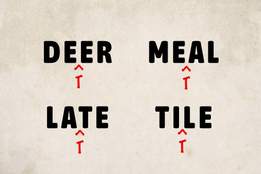ab·stract
ab-ˈstrakt  ˈab-ˌstrakt
ˈab-ˌstrakt 
 ˈab-ˌstrakt
ˈab-ˌstrakt 
1
a
: disassociated from any specific instance
an abstract entity
b
: difficult to understand : abstruse
abstract problems
c
: insufficiently factual : formal
possessed only an abstract right
2
: expressing a quality apart from an object
the word poem is concrete, poetry is abstract
3
a
: dealing with a subject in its abstract aspects : theoretical
abstract science
b
: impersonal, detached
the abstract compassion of a surgeon— Time
Time
 Time
Time4
: having only intrinsic form with little or no attempt at pictorial representation or narrative content
abstract painting
ab·stract
ˈab-ˌstrakt 


in sense 2 also
ab-ˈstrakt 
1
: a summary of points (as of a writing) usually presented in skeletal form
also
: something that summarizes or concentrates the essentials of a larger thing or several things
2
: an abstract thing or state (see abstract entry 1)
ab·stract
ab-ˈstrakt  ˈab-ˌstrakt
ˈab-ˌstrakt 

 ˈab-ˌstrakt
ˈab-ˌstrakt 
in sense 3 usually
ˈab-ˌstrakt 
abstracted; abstracting; abstracts
2
: to draw away the attention of
His imagination had so abstracted him that his name was called twice before he answered.— James Joyce
James Joyce
 James Joyce
James Joyce5
: to consider apart from application to or association with a particular instance
: to make an abstraction
Love words? Need even more definitions?
Merriam-Webster unabridged









Share